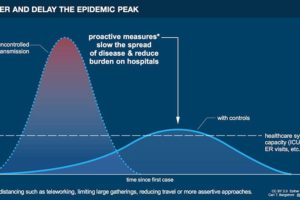Seems like anyone who is even the least bit interested in health has seen a ton of articles about Omega’3 fats. Even if you have never picked up a Men’s or Women’s Health magazine (which I don’t recommend because they publish all research, even crummy research because they are slaves to their advertisers, as fad diets and fad supplements are big money for them) it’s difficult to have not heard about them on your car radio, on social media, or even on television.
Meanwhile organizations like Harvard Health Publishing have come out with an articles entitled “Fish oil capsules: Net benefits for the heart are limited” (Corliss, 2017). This articles discusses how some research has shown that fish oil supplements are not as good as eating fish itself (Corliss, 2017). I must say that I sympathize with this argument but since I come from a Functional Medicine background, I want to know more than just what fish oil can do for the heart. As we know, the systems in our body don’t exist in isolation from each other, and the same is true with our vascular system and all the other systems in our body. They are all intricately intertwined. So while fish oil may not help prevent a heart attack, it could help your body in other ways that can indirectly help you avoid a heart attack by helping to keep you healthy in other ways.

I will admit that I have a bit of a conflict here and I think it’s important that I tell you rather than try to sell you on an idea for my own benefit. I don’t have any ties to a supplement company, (I am as skeptical of supplement companies as I am of the pharmaceutical and processed food industries as big money tends to corrupt science and the pursuit of knowledge) any specific diet, and neither am I trying to sell a book to promote any of these either. I’m a humble nutritionist doing my best to try and stay away from corporate or other financial conflicts of interest. The conflict I do have though is that I’m not a big fan of the taste of fish, and so I have come to rely on Omega-3 supplements to help keep my blood levels of Omega 3’s in health promoting ranges. That being said, I have no issue with the idea or the research that shows eating fish is better than supplementing. So with that in mind, let’s take a look at some of the research.
One study done in 2013 on a cohort of 2692 adults older than 74 showed that high circulating individual and total Omega-3 fats are associated with reduced chances of death (Mozaffarian et al., 2013). Now this isn’t necessarily saying that supplements provide the benefit but it is saying that there is an association between blood levels of Omega-3s and reduced chances of death (or mortality as it is called scientifically). Other studies have shown that fish oil supplementation doesn’t necessarily provide the same benefit that eating fish does, at least for the cardiovascular benefits (Consumerlab.com, 2018).
Now there is a plethora of other research that has been done on Omega-3’s well beyond just cardiovascular impacts. The next article will go into some of the research for using Omega-3 supplements for mental health to start.
References:
Consumerlab.com. (July 28, 2018). Fish Oil and Omega-3 and -7 Fatty Acid Supplements Review. Retrieved from: https://www.consumerlab.com/m/reviews/fish_oil_supplements_review/omega3/
Corliss, J. (November 24, 2017). Fish oil capsules: Net benefits for the heart are limited.” Harvard University. Retrieved from: https://www.health.harvard.edu/blog/fish-oil-capsules-heart-benefits-limited-2017112412763?utm_content=bufferabb9f&utm_medium=social&utm_source=facebook&utm_campaign=buffer
Mozaffarian, D., et al. (2013). Plasma phospholipid long-chain ω-3 fatty acids and total and cause-specific mortality in older adults: a cohort study. Annals Of Internal Medicine, 158(7), 515-525. doi:10.7326/0003-4819-158-7-201304020-00003






